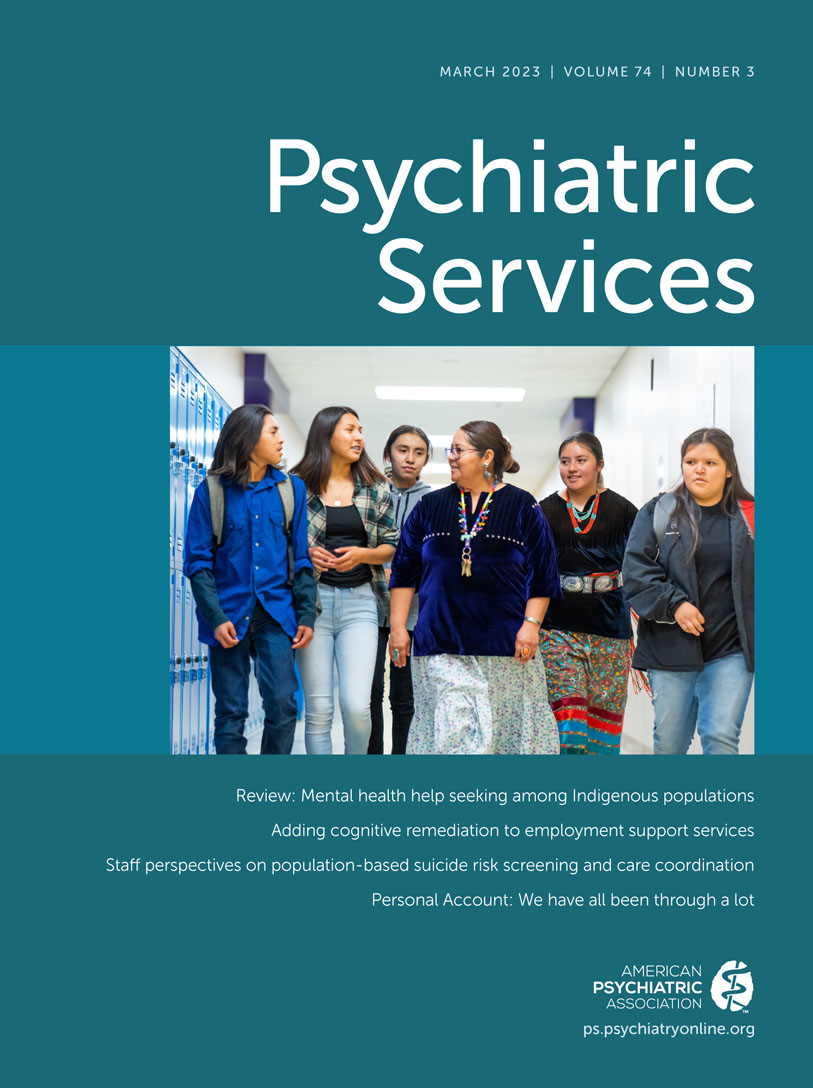Preventing Homelessness Through the National Call Center for Homeless Veterans: Analysis of Calls and Service Referrals
Abstract
Objective:
This study was the first to examine the characteristics and referral outcomes for veterans calling the National Call Center for Homeless Veterans (NCCHV).
Methods:
The authors analyzed data from NCCHV and U.S. Department of Veterans Affairs (VA) health care records.
Results:
Between December 2018 and October 2020, the NCCHV received 266,100 messages, with no major increase in the first 6 months of the COVID-19 pandemic. Of 110,197 veterans who contacted NCCHV, 69.6% were at risk for homelessness, and 20.1% were homeless. Most contacts (90.2%) resulted in a referral or transfer to a local resource. About 59.5% of NCCHV veterans had a medical record in the Veterans Health Administration; their use of homeless programs increased from 25.9% to 81.3%. Uses of mental health services, substance use treatment, and medical services showed small-to-moderate increases after NCCHV contacts.
Conclusion:
NCCHV is important for linking veterans to health and social care. Additional work is needed to assess veterans’ outcomes after an NCCHV contact.



